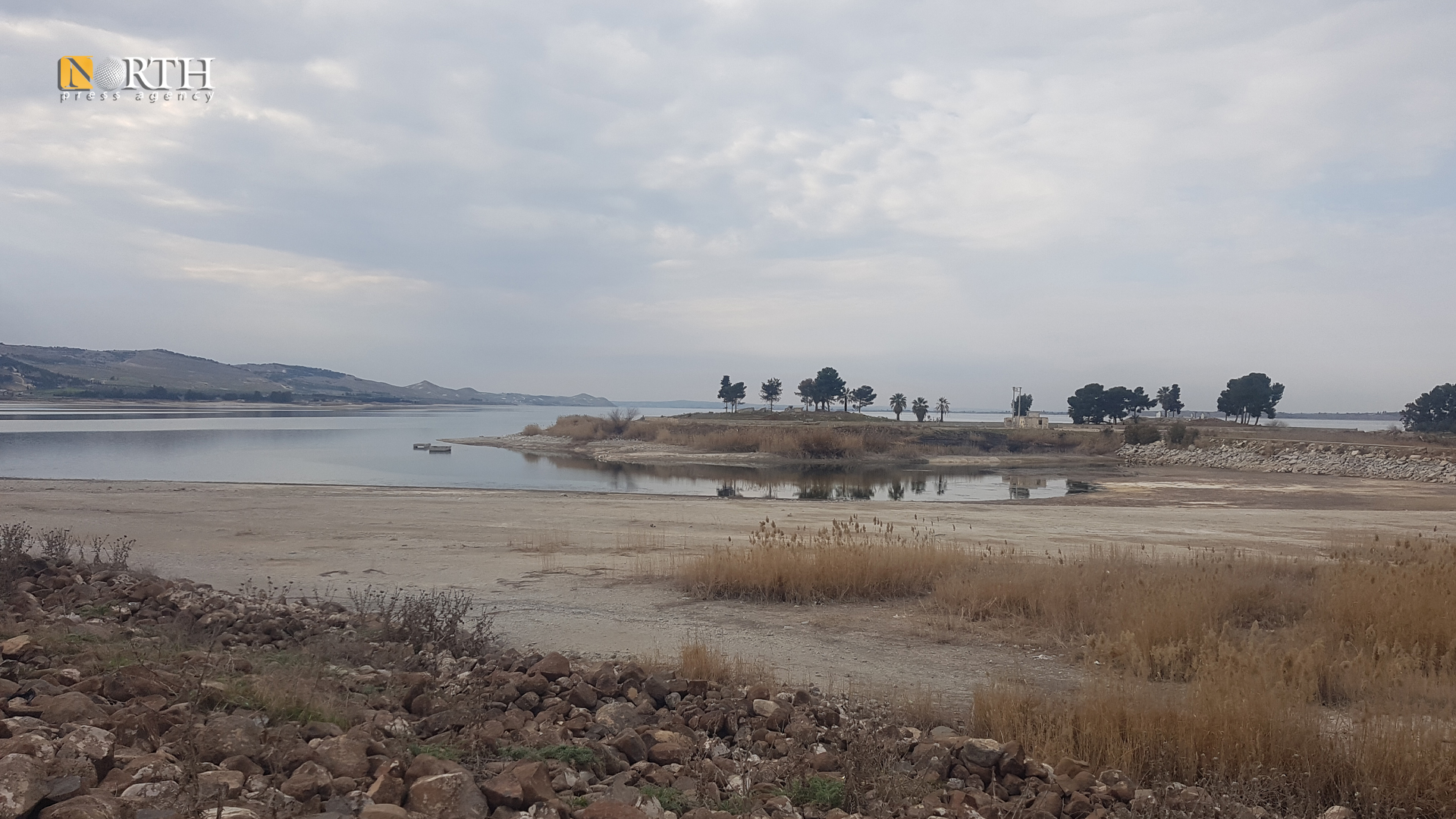Turkmen Association in Manbij: Turkey weaponizes water in northern Syria
MANBIJ, Syria (North Press) – On Wednesday, Sarwat Sabri, co-chair of the Turkmen Association in northern Syria’s Manbij, said that Turkey deliberately cuts off water to put pressure on the Autonomous Administration, and that the only one affected “is the people.”
Turkmen residents of Manbij believe that Turkey hoards the Euphrates water for political reasons. Turkey’s cutoff of water led to a recent drop in the Euphrates River’s water level, which greatly affected the generation of electric power in Manbij and its countryside, in addition to damaging crops.
“Drought is just around the corner if the situation remains like this,” Sabri told North Press.
“We as Turkmen living in Manbij and its countryside call on the international community and the concerned powers in the Syrian issue to pressure the Turkish government to re-pump the Euphrates River water, and abide by the treaty signed between Ankara and Damascus in the 1980s,” Sabri said.
Sabri stressed the need for Turkey to adhere to its agreement with the Syrian government regarding Syria’s share of the river’s water, and to exclude the people from its “immoral policies.”
According to the agreement signed between Syria and Turkey in 1987 related to the Euphrates River, Syria’s share of water coming from Turkey, is 500 m³ per second.
The Turkmen minority in Syria have a centuries-long history in the region, with most Turkmen settling in northern Syria during the Ottoman era. Most are Sunni Muslims, and many of them speak Turkish in addition to Arabic. Many live in the northwestern countryside of Manbij and the eastern part of Manbij city. There are no official statistics on the number of Turkmen in Syria, though the Turkmen Association in Manbij said the Turkmen community represent 3% of the population in Manbij and its countryside.
Naasan Dardara, a Turkmen resident of Manbij, told North Press that Turkey’s water cutoff has had major negative repercussions on the daily life of the region’s residents.
Most businesses and professions in the city stopped due to the power outage, in addition to the need for watering, all of which were affected by the water cut, according to Dardara.
In recent months, the cities of northeast Syria are witnessing a significant decrease in the regular electricity hours compared to the previous month, because the administration of Tishreen Dam set a new power rationing program commensurate with the amount of water resources after Turkey reduced the flow of the Euphrates.
Turkey keeps water in six dams, the largest of which is Ataturk Dam, the second largest in the Middle East, with a storage capacity of 48 billion m³, violating the international agreement they signed.
“It is a big problem if the situation continues like this; it also affected the agriculture, especially villages near the Euphrates. People’s work stops. Watering stops, we have olive groves and vineyards, and all need watering,” Dardara concluded.

